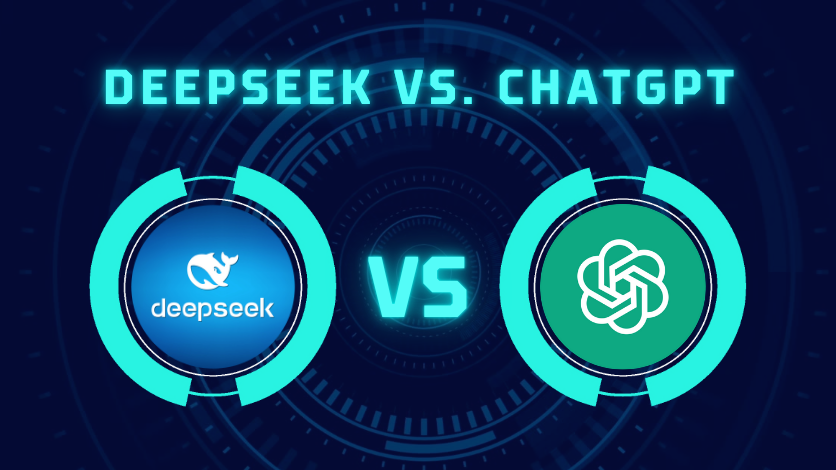

Artificial intelligence chat models are evolving fast. New competitors are emerging with advanced capabilities, challenging established names. DeepSeek vs. ChatGPT is a common comparison among AI users looking for the best chatbot or language model. Each has unique strengths, but which one is more effective?
What is DeepSeek?
DeepSeek is a relatively new AI language model designed to process and generate human-like text. It was developed to compete with leading models by offering advanced text analysis, natural language understanding, and contextual accuracy.
Key Features of DeepSeek
Natural Language Processing (NLP) – DeepSeek is trained to understand context and generate coherent responses.
Multilingual Support – It can process multiple languages, making it useful for global users.
Machine Learning Capabilities – The model continuously improves through exposure to new data.
Enhanced Context Retention – DeepSeek is designed to follow longer conversations without losing context.
Who Owns DeepSeek?
DeepSeek is owned by a research and development team specializing in artificial intelligence. While it’s not as widely recognized as OpenAI, the creators aim to compete with top AI models in accuracy and usability.
What is ChatGPT?
ChatGPT is an AI language model developed by OpenAI. It is one of the most widely used chatbots, known for its ability to generate human-like text, answer questions, and assist with various tasks. Over multiple versions, ChatGPT has improved in accuracy, context retention, and functionality.
Key Features of ChatGPT
Conversational AI – ChatGPT engages in natural, flowing conversations, making it useful for both casual and professional interactions.
Versatile Applications – It can generate text, assist with coding, summarize content, and provide customer support.
Regular Updates – OpenAI continuously improves the model, refining its knowledge and reducing biases.
Different Versions Available – Free and premium versions offer different levels of performance, with paid plans unlocking advanced capabilities.
Strengths of ChatGPT
Wide User Adoption – Millions of users rely on ChatGPT for daily tasks, from answering questions to generating content.
Broad Knowledge Base – It has been trained on diverse data, allowing it to respond to a wide range of topics.
Integration with Other Tools – ChatGPT supports API access, making it easy to integrate into apps, websites, and business workflows.
Both DeepSeek and ChatGPT aim to provide high-quality AI-driven text generation, but their differences set them apart. Comparing their features and performance helps determine which model fits specific needs better.
DeepSeek vs. ChatGPT: Feature Comparison
DeepSeek and ChatGPT are both AI-driven models, but they function differently in various aspects. From accuracy to usability, each has strengths that may suit different users.
A. Model Capabilities
Accuracy & Knowledge Scope – ChatGPT has been refined over multiple versions, giving it a broad and deep knowledge base. DeepSeek, while promising, is still growing in terms of data coverage and reliability.
Multimodal Abilities – ChatGPT supports text-based interactions and, in some versions, can process images. DeepSeek primarily focuses on text-based AI but is evolving.
Context Retention – Both models handle long-form conversations, but ChatGPT has a stronger reputation for maintaining context over extended interactions.
B. Training & Data Sources
Data Sets Used – ChatGPT is trained on a vast dataset sourced from books, articles, and publicly available content. DeepSeek’s training data is less transparent but is designed to match high-level language understanding.
Bias & Limitations – Every AI model has biases based on its training data. OpenAI actively works to reduce biases in ChatGPT. DeepSeek’s approach to bias mitigation is still being evaluated.
C. Usability & Access
Availability – ChatGPT offers a free version and a paid premium option with better performance. DeepSeek’s pricing and accessibility depend on its development updates.
Integration & API Support – ChatGPT provides robust API access for businesses and developers. DeepSeek’s API capabilities are still expanding.
User Interface & Experience – Both models aim for ease of use, but ChatGPT benefits from OpenAI’s polished interface and wide-scale adoption.
DeepSeek and ChatGPT have distinct approaches to AI-powered interactions. Understanding their differences helps users decide which model aligns with their specific needs.
Which is Better: ChatGPT or DeepSeek?
Choosing between ChatGPT and DeepSeek depends on the specific use case. Each model has strengths that make it more suitable for certain tasks.
Best for General Conversations
ChatGPT is widely recognized for its ability to generate natural, engaging dialogue. Its training data allows it to respond with well-structured and contextually appropriate answers. DeepSeek, while effective, is still developing its conversational depth.
Best for Business & Productivity
For tasks like customer support, content generation, and workflow automation, ChatGPT is the preferred choice. It integrates well with third-party applications, making it useful for business operations. DeepSeek has potential in these areas but is not as widely adopted.
Best for Developers & Technical Use
Both models assist with programming and technical queries. ChatGPT, particularly in its advanced versions, can generate and debug code efficiently. DeepSeek also supports technical prompts, but its coding capabilities are still being evaluated.
Final Verdict
If the goal is widespread functionality, strong conversation skills, and business integration, ChatGPT is the better option. DeepSeek is promising but needs further development to match the refinement of OpenAI’s model. However, as AI technology advances, both models may continue to improve, offering more specialized solutions.


